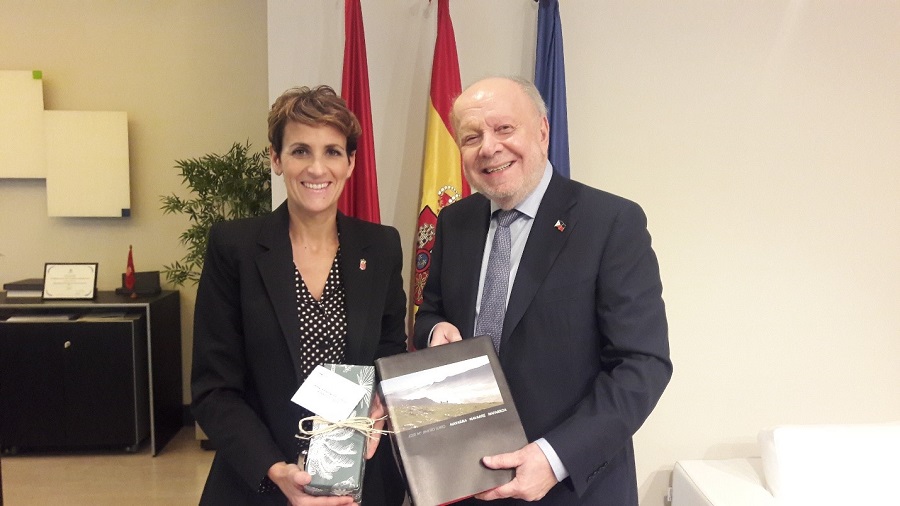
Philippine Ambassador to Spain, H.E. Philippe J. Lhuillier, undertook an official visit to Pamplona, Navarra from 13 to 14 November 2019, during which he met with key government officials from the region, as well as business associations and members of the Filipino community. The visit also included a special business seminar on the Philippines on 14 November.
The events were organized in close coordination with the Navarra-Philippines Friendship Association (Asociación de Amigos Navarra y Filipinas / ANAFI) and the Philippine Honorary Consulate in Bilbao. The Philippine delegation, headed by Ambassador Lhuillier, also included Third Secretary and Vice Consul Mikhal C. de Dios and the Honorary Consul of the Philippines in Bilbao, Ms. Susana Palomino. The ANAFI representatives included its President, Mr. Javier Trigo, and officers Mr. Juan José Rubio and Mr. Ignacio Galañena.
The official visit began with a meeting with the regional governor of Navarra, Hon. María Victoria Chivite Navascués, at the gubernatorial palace. Ambassador Lhuillier presented his aims as the Philippines’ representative in Spain, highlighting his focus on economic diplomacy and cultural engagement. The ANAFI officers, meanwhile, introduced their newly-founded organization and spoke of their four objectives in fostering solidarity, cultural relations, sports development, and commercial relations.
The participants also noted the Philippines’ strong economic potential and rapid development, as well as Navarra’s historic ties with the country, with several Philippine towns bearing Navarrense names such as Pamplona, Corella, and Barasoain.
For her part, Governor Chivite warmly received the delegation and said that her government could look into developing solidarity projects with the Philippines through ANAFI; organizing a business mission to the Philippines; and cooperating in health care and health policy, for which Navarra is renowned.
The delegation then paid a call on the President of the Parliament of Navarra, Hon. Unai Hualde Iglesias. After being provided a brief overview of the Philippines’ economic progress and opportunities, President Hualde said that the legislature could potentially consider adding the Philippines to Navarra’s priority list in the region’s economic internationalization plan.
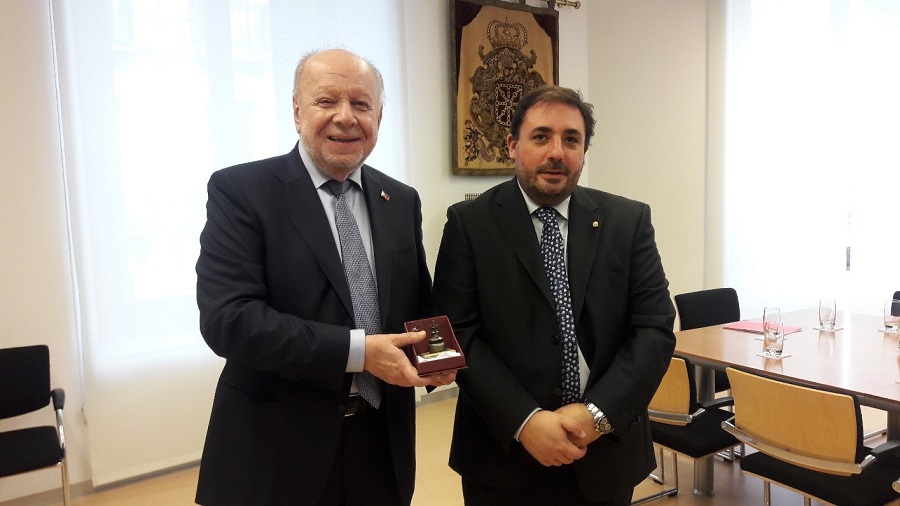
The visit then moved to the University of Navarra, where the delegates were received by the current President, Dr. Alfonso Sánchez-Tabernero. The University, considered one of Spain’s most prestigious educational institutions, currently hosts around fifty Filipino students and is an international partner of the University of Asia and the Pacific.
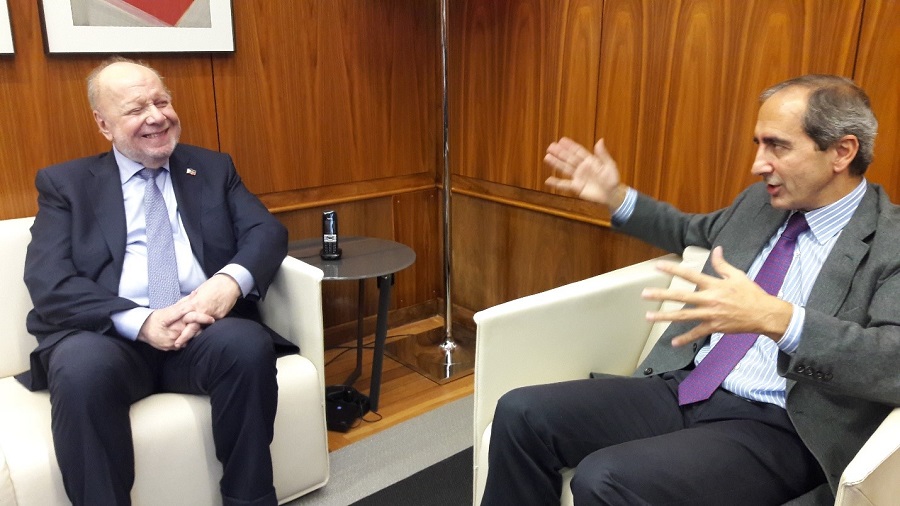
During the meeting, Dr. Sánchez-Tabernero recommended the establishment of the first Spanish language chair in the Philippines. In addition, he noted that the University is working to attract more Philippine and international students, in order to foster a more diverse learning environment. While 30 percent of the University’s students from abroad, in the rest of Spain only 3 percent of students come from other countries.
Ambassador Lhuillier and the delegates then met with the Filipinos students themselves, which included theology students, priests, and some members of religious orders working in Pamplona. The Ambassador exhorted them to be ambassadors for the Philippines in Spain in their own right, and to promote the country and culture within their own communities.
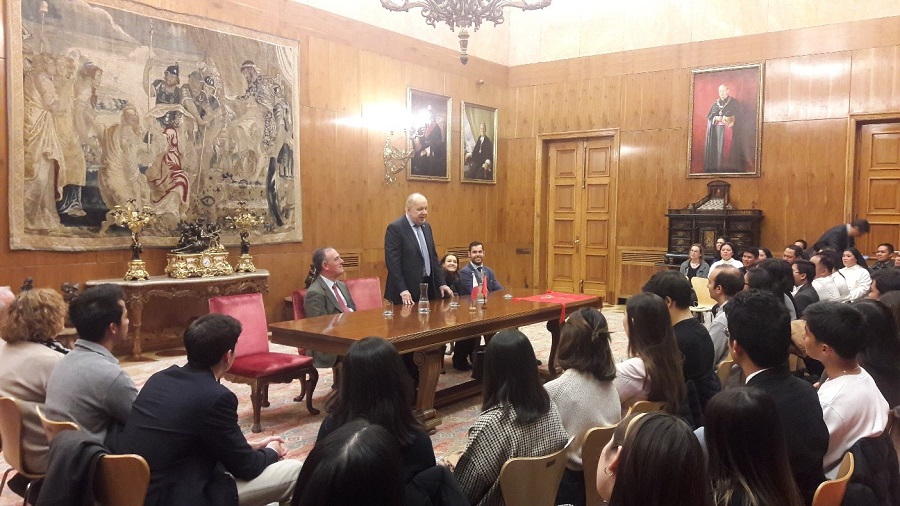
In response, the students expressed their appreciation for the Ambassador’s visit and the chance to make personal contact with the Philippine Embassy. The students also inquired about consular concerns, such as how to register for overseas voting and other matters, which the Embassy addressed.
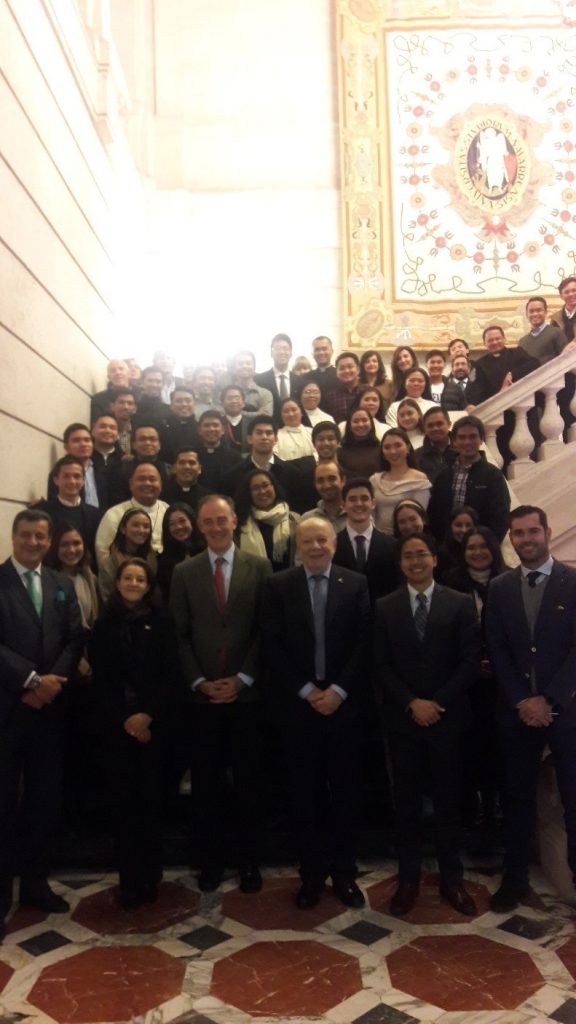
The first day of the visit also included an interview with online magazine Navarra Capital, in which Ambassador Lhuillier discussed the Philippines’ main economic sectors and its rapid development; the Build, Build, Build infrastructure program; bilateral relations between the two countries; unique advantages that the Philippines has for Navarrense companies; and opportunities in the greater ASEAN market of 640 million consumers, with the Philippines as Spain’s natural entry point.
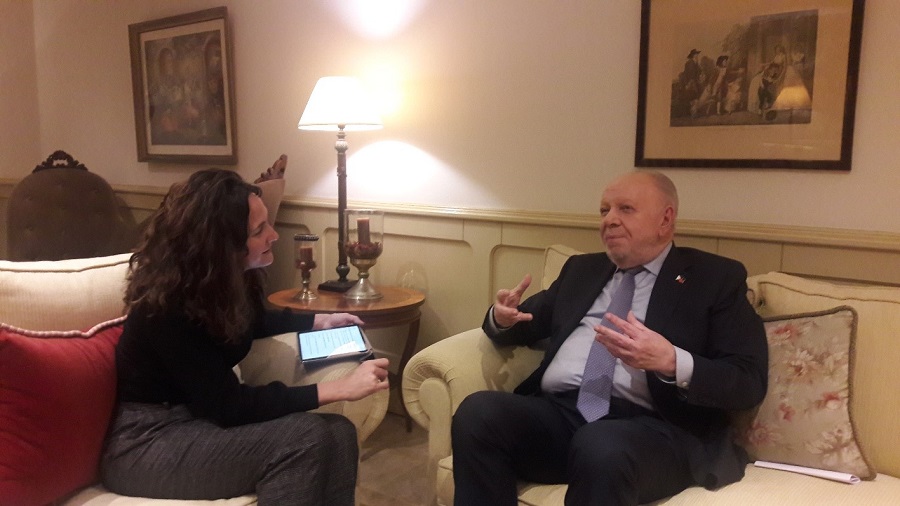
The second day began with a meeting with the President of the Confederation of Entrepreneurs of Navarra (CEN), Mr. José Antonio Sarría. In describing Navarra, Mr. Sarría noted that the region is home to the top freezing and preservation industries in Spain, stating they had successfully converted their farmers into agri-industrialists. Today, Navarra is known for its advances in renewable energy, bio-tech, medicine, agribusiness, preserved and frozen food, and wines.
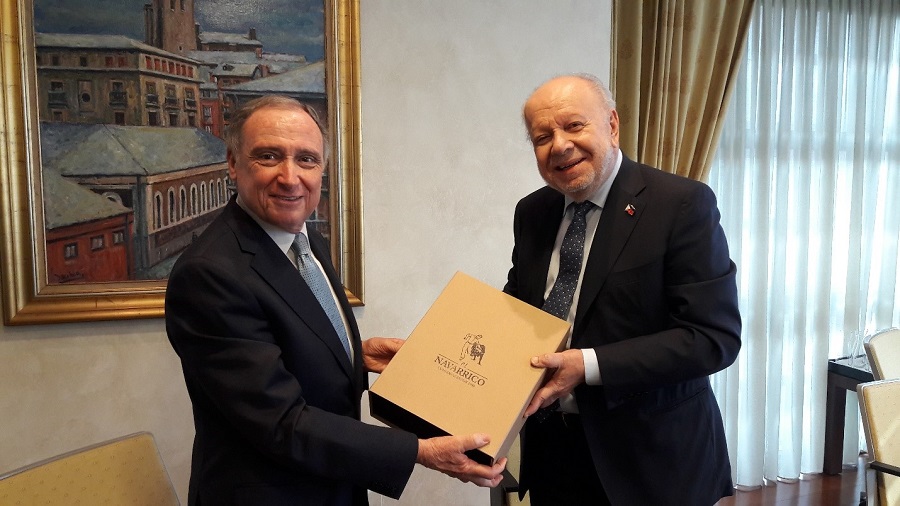
The Ambassador then met with the President of the Chamber of Commerce, Industries, and Services of Navarra, Mr. Javier Taberna, who welcomed the delegation to their office and expressed optimism about the Philippines’ economic potential.
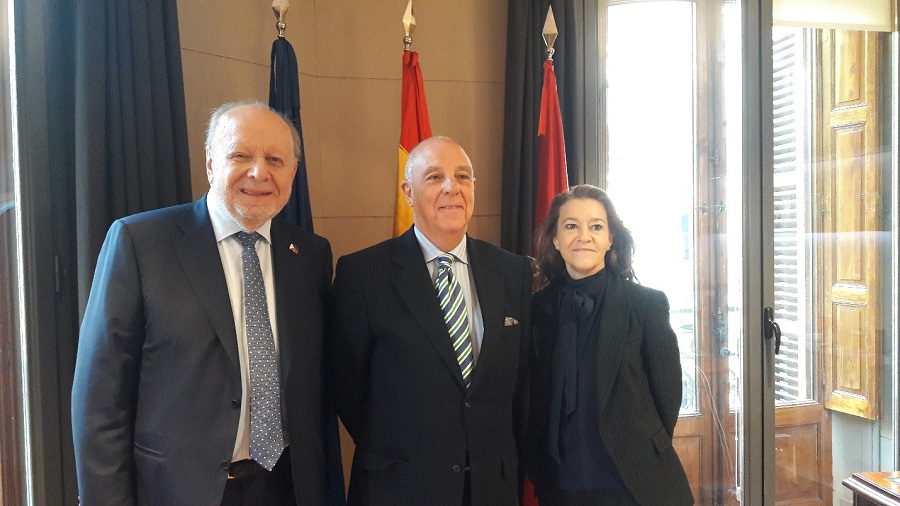
The Chamber then hosted a business and investment seminar on the Philippines for its member companies, in which the Embassy presented the country’s infrastructure initiatives; the numerous investment opportunities and incentives available; priority and emerging growth sectors; the current administration’s plan to boost renewable energy usage; tourism attractions and more.
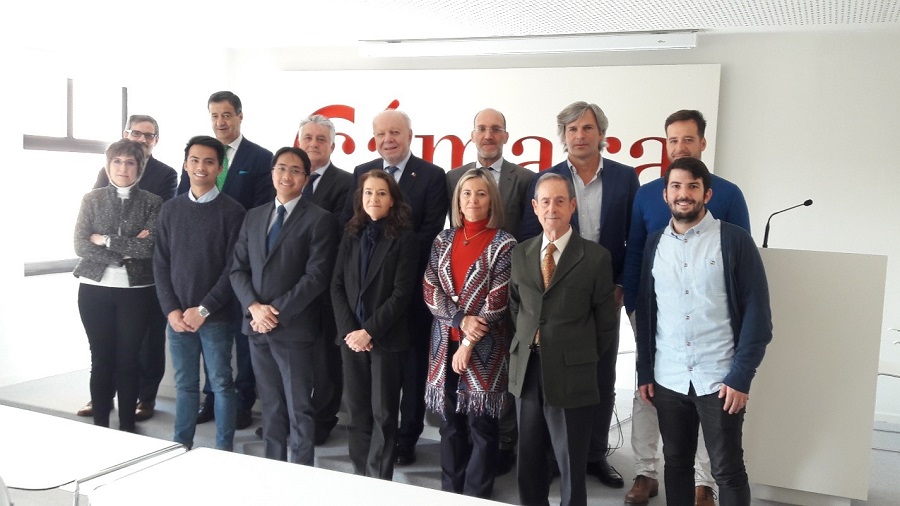
The official visit then concluded with a call on the mayor of Pamplona, Hon. Enrique Maya. At this meeting, the participants agreed to look into the possibility of entering into a bilateral cooperation agreement between Pamplona and a Philippine counterpart, as well as opportunities to revive and promote Navarrense sports such as frombol and pelota.
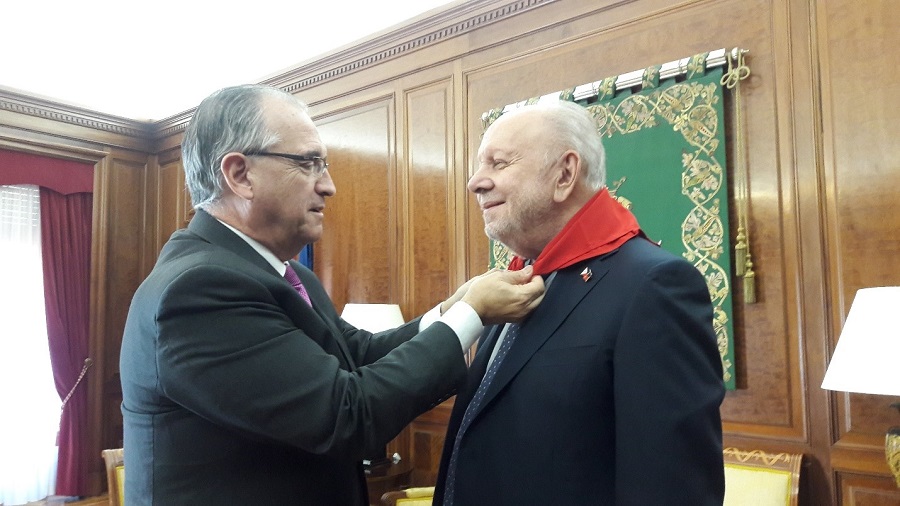
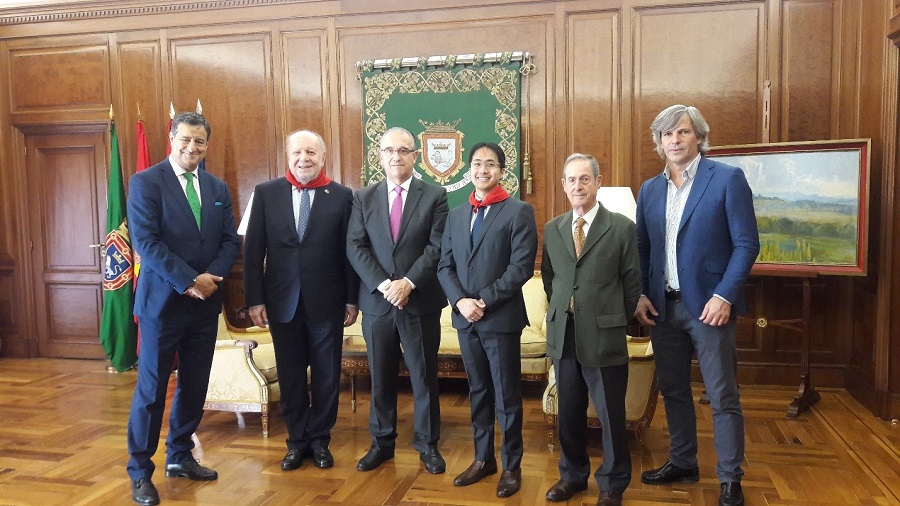
Navarra, known officially as the Chartered Community of Navarra, is an autonomous community and province in northern Spain, bordering the Basque Autonomous Community and Aragon. While it has a population of just 600,000, in terms of economic performance, Navarra is one of the wealthiest regions in the country and enjoys the lowest unemployment rate in Spain. It is also a European leader in renewable energy, with a majority of its energy generation sourced from wind and water.
